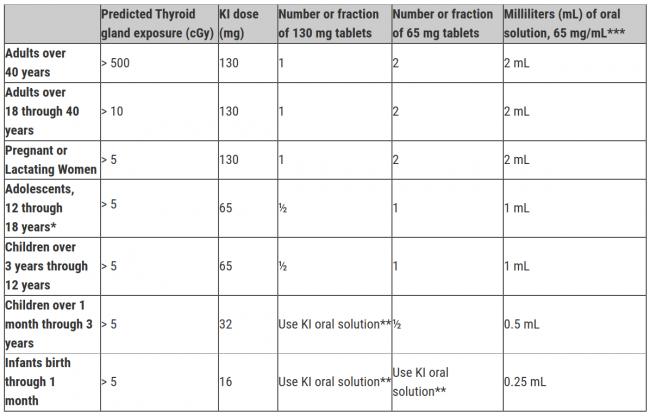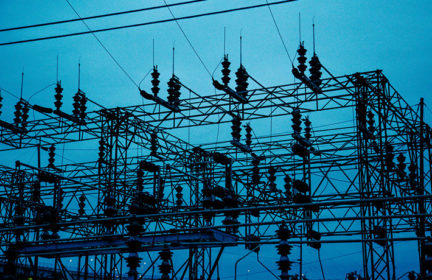FDA guidance on taking potassium iodide after a nuclear bomb goes off
Many people’s minds are on nuclear war, radiation, and how to survive such a catastrophic event. Wanting to filter out the fact from fiction and the fear mongering from the rational way to prepare, I looked for a reputable resource on what to do.
Click here to read the entire FAQ by the FDA about potassium iodide, but I will sum things up below.
What does potassium iodide (KI) do?
KI reduces the risk of thyroid cancer in people who inhale or ingest radioiodines by flooding the thyroid with non-radioactive iodine and prevents the thyroid from taking on the bad radioactive kind. The non-radioactive iodine then is excreted in the urine.
My opinion – This pill won’t stop radiation from getting into your body. And if you shelter in place, have good filtered air, and aren’t eating or drinking things that have been outside and exposed to the radiation, then there really isn’t any point to take KI.
Who really needs to take potassium iodide (KI) after a nuclear radiation release?
The FDA says that infants, children, and pregnant/nursing women are at the highest risk of developing radioiodine-induced thyroid cancer and should be given priority if a limited number of KI is available. And they should be properly dosed as explained later. Anyone over 40 should only be treated if they are expected to receive a very high dose of radiation that would destroy their thyroid and induce lifelong hypothyroidism (thyroid deficiency).
What potassium iodide (KI) products are currently available?
These are the only FDA approved KI products on the market
- iOSAT tablets, 130mg, from Anbex, Inc.
- iOSAT tablets, 65mg, from Anbex, Inc.
- ThyroSafe tablets, 65mg, from BTG INTERNATIONAL, Inc.
- Potassium Iodide Oral Solution USP, 65mg/mL, from Mission Pharmacal Company
Below is a chart with dosing depending on which above product you have. This would be good to print and store with whatever KI product you have. See the full post in the link above for a better view of this chart.
When and for how long should I take potassium iodide (KI)?
Don’t take KI as a preventative before radiation exposure. If there is a radiological event, officials will tell the public if there is a need to take KI. KI is best used within 3-4 hours of exposure, so you do have some time. Taking a higher dose of KI than is recommended in the chart above doesn’t give you more protection, your thyroid can only hold onto so much iodine and extra in your system will cause illness or death. KI protects for 24 hours, so take the above recommended dose daily until officials tell you the threat is over.
Should I buy potassium iodide (KI) to keep on hand
The Nuclear Regulatory Commission recommends that those within 10-miles of a nuclear power plant have some KI on hand.
My opinion – If you live within 15 miles of a potential nuclear target, I would possibly consider it.
My summary – Sounds like only certain people are recommended to have KI and only if they use it properly and are exposed to certain amounts of radiation. It isn’t a magic pill that lets you then walk around in the nuclear wasteland and is more limited than many of us probably think it is. Still, preventing thyroid cancer is something to think about.
Read the entire FDA guide for more info, better details, and which people are not recommended to take KI.
-
Comments (4)
-


